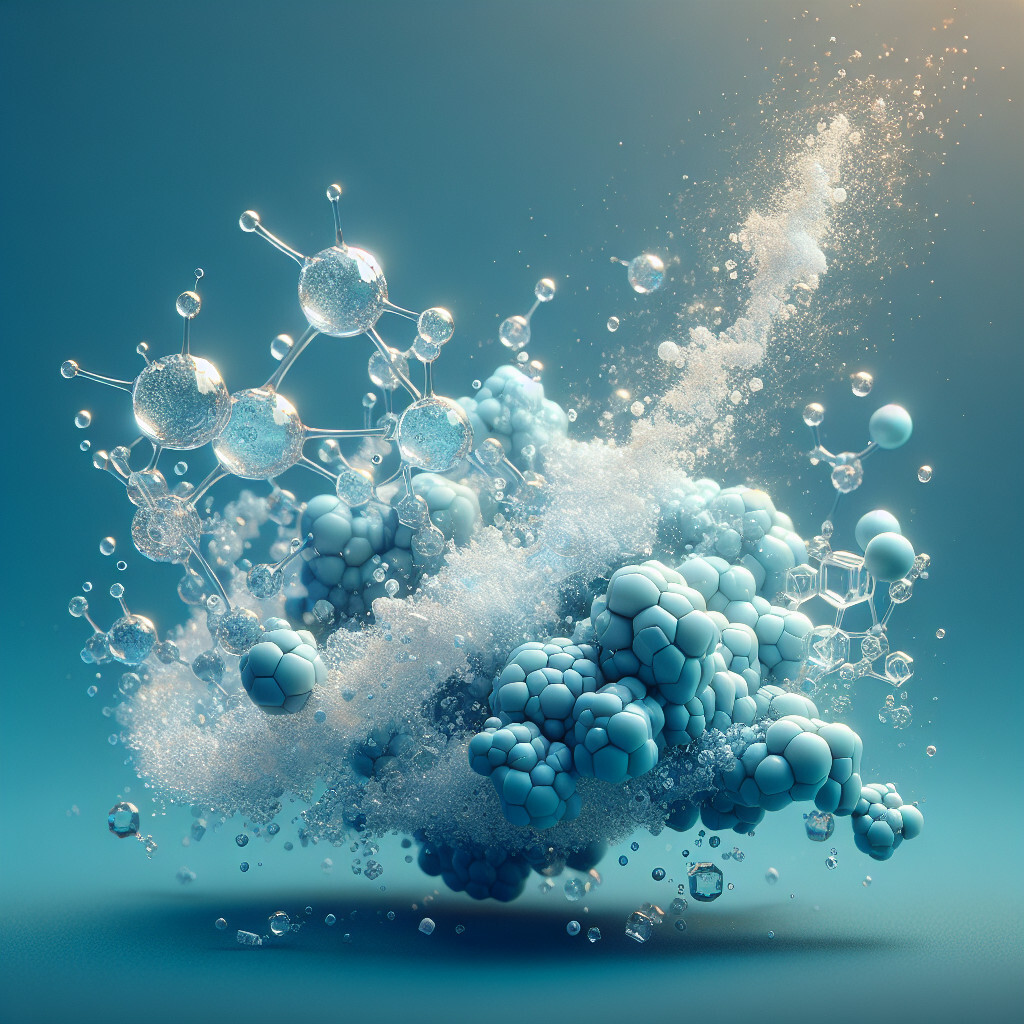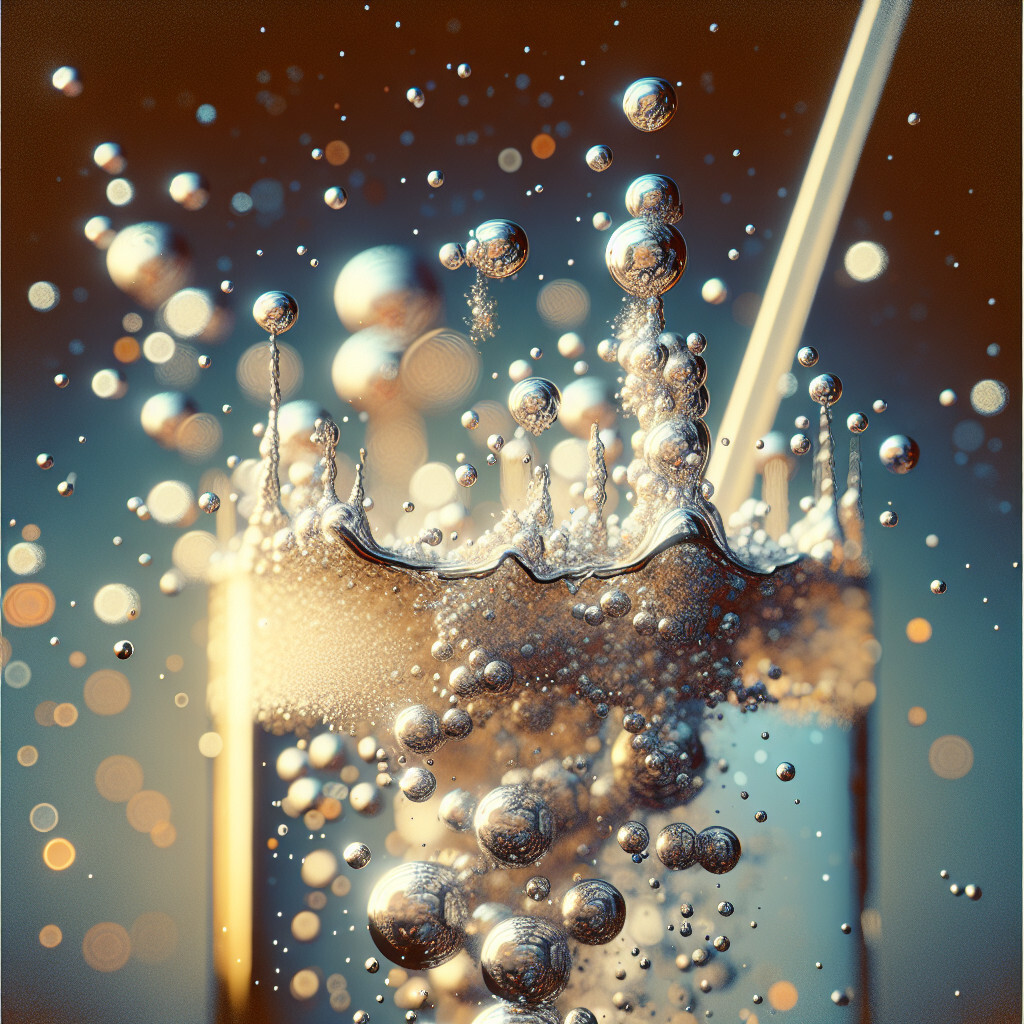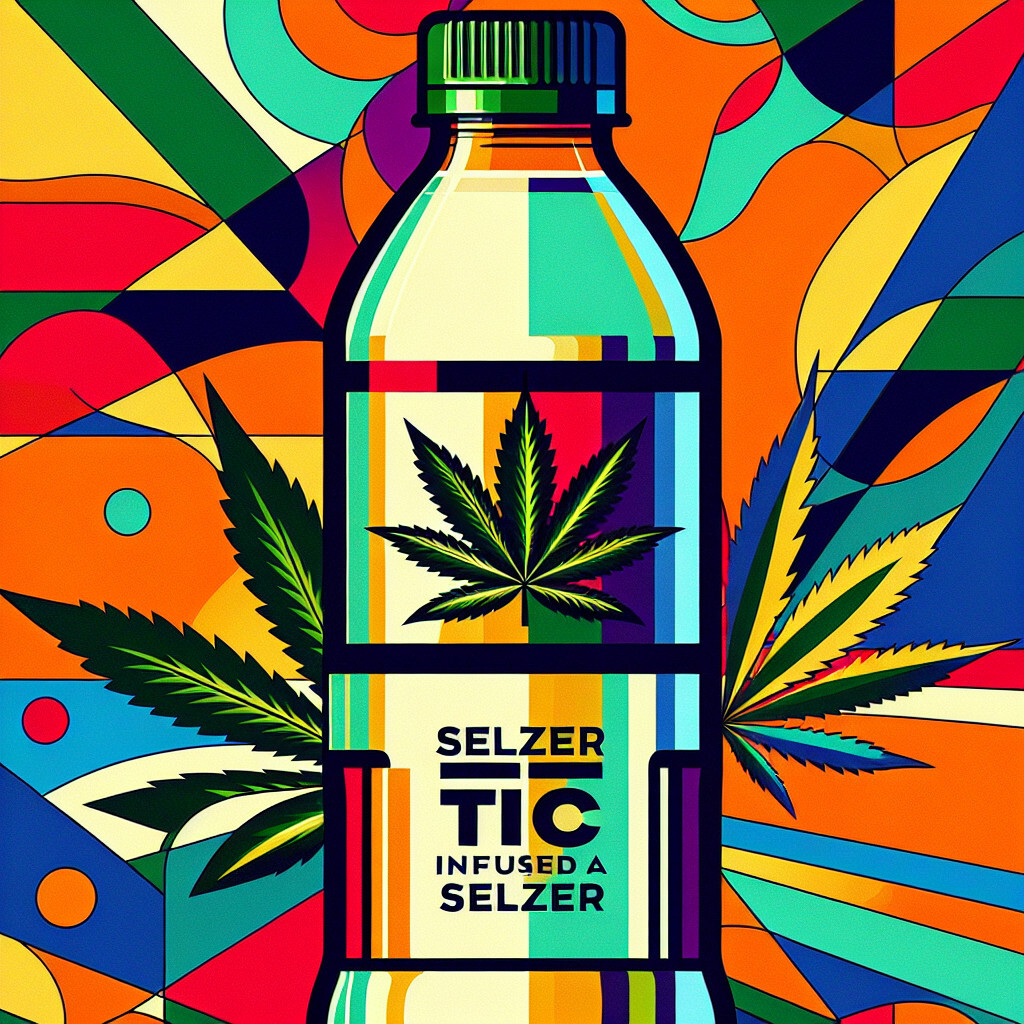-
Table of Contents
“Seltzer Water: A Refreshing Solution to Uric Acid Buildup.”
Introduction

Seltzer water and uric acid are often discussed together in the context of health and diet, particularly in relation to conditions such as gout. Uric acid is a waste product in the body, and high levels can lead to health issues. Seltzer water, also known as carbonated water, is a popular beverage choice. Some believe that seltzer water can help in flushing out uric acid from the body, while others argue that it may contribute to increased uric acid levels. The relationship between seltzer water and uric acid is a topic of ongoing research and debate.
Understanding the Impact of Seltzer Water on Uric Acid Levels
Seltzer water, also known as sparkling water, has gained significant popularity in recent years due to its refreshing taste and perceived health benefits. However, there has been a growing concern about the potential impact of seltzer water on uric acid levels in the body. Uric acid is a waste product that is naturally produced by the body and is usually eliminated through urine. However, when the body produces too much uric acid or fails to excrete it efficiently, it can lead to health problems such as gout and kidney stones. Therefore, understanding the relationship between seltzer water and uric acid levels is crucial.
Seltzer water is essentially water that has been carbonated, meaning it has been infused with carbon dioxide under pressure. This process gives the water its characteristic fizz and tangy taste. Some brands of seltzer water may also contain added flavors or minerals, but it is generally free of sugars and calories, making it a healthier alternative to sugary soft drinks. However, the question remains: does seltzer water affect uric acid levels?
The concern arises from the fact that carbonated beverages, particularly those sweetened with high-fructose corn syrup, have been linked to increased uric acid levels. High-fructose corn syrup is a common sweetener in sodas and has been shown to increase uric acid levels, leading to gout and other health problems. However, it’s important to note that seltzer water is not the same as soda. While both are carbonated, seltzer water does not typically contain high-fructose corn syrup or any other sweeteners.
In fact, research suggests that seltzer water may not have any significant impact on uric acid levels. A study published in the American Journal of Clinical Nutrition found no association between the consumption of carbonated beverages and uric acid levels, provided these beverages were not sweetened with high-fructose corn syrup. This suggests that the carbonation process itself does not contribute to increased uric acid levels.
Moreover, seltzer water, being primarily water, can contribute to overall hydration. Adequate hydration is essential for the efficient elimination of waste products, including uric acid, from the body. Therefore, drinking seltzer water may actually aid in maintaining healthy uric acid levels by promoting hydration.
However, it’s worth noting that while seltzer water may not directly increase uric acid levels, it can contribute to acid reflux in some individuals due to its carbonation. Acid reflux can lead to discomfort and other health issues if not managed properly. Therefore, individuals with a history of acid reflux may want to limit their consumption of seltzer water.
In conclusion, while seltzer water has been associated with many health benefits, its impact on uric acid levels appears to be minimal. It does not contain the high-fructose corn syrup found in many sodas that is known to increase uric acid levels. Instead, it may contribute to maintaining healthy uric acid levels by promoting hydration. However, as with any beverage, it should be consumed in moderation and as part of a balanced diet. Individuals with specific health concerns, such as acid reflux, should consult with a healthcare professional before making significant changes to their diet.
The Role of Seltzer Water in Managing Uric Acid
Seltzer water, also known as sparkling water, has gained significant popularity in recent years due to its refreshing taste and perceived health benefits. One of the areas of interest is its potential role in managing uric acid levels in the body. Uric acid is a waste product that is naturally produced by the body. However, when produced in excess, it can lead to health complications such as gout and kidney stones. Therefore, understanding the relationship between seltzer water and uric acid is crucial.
Seltzer water is essentially water that has been carbonated, meaning it has been infused with carbon dioxide under pressure. This process gives the water its characteristic fizz and tangy taste. It is important to note that seltzer water is different from other types of carbonated water such as club soda, tonic water, and mineral water, which may contain added salts, minerals, or sugars. Pure seltzer water, on the other hand, contains only water and carbon dioxide.
The question of whether seltzer water can help manage uric acid levels arises from the fact that hydration plays a key role in controlling these levels. When the body is well-hydrated, it is able to effectively flush out excess uric acid through urine. Since seltzer water is essentially just water with carbonation, it can contribute to overall hydration levels, thereby potentially aiding in the management of uric acid.
However, it is crucial to understand that while seltzer water can contribute to hydration, it should not be the sole source of hydration. The carbonation in seltzer water can lead to feelings of fullness, potentially reducing overall fluid intake. Additionally, some people may experience bloating or gas from the carbonation, which could discourage them from drinking adequate amounts of fluids.
Moreover, while seltzer water can contribute to hydration, it does not have any specific properties that would make it more effective than regular water in managing uric acid levels. The key to managing uric acid levels is not just hydration, but also a balanced diet that is low in purine-rich foods, regular exercise, and, if necessary, medication.
It is also worth noting that some studies have suggested a potential link between carbonated beverages and increased risk of gout, a form of arthritis caused by high uric acid levels. However, these studies typically do not differentiate between sugary carbonated beverages and unsweetened seltzer water, and more research is needed to fully understand this relationship.
In conclusion, while seltzer water can contribute to overall hydration and potentially aid in the management of uric acid levels, it should not be relied upon as a primary method of control. Regular water is just as effective, if not more so, due to the potential side effects of carbonation. As always, a balanced diet and regular exercise are crucial components of managing uric acid levels, and any concerns or questions should be addressed with a healthcare professional.
Exploring the Connection between Seltzer Water and Uric Acid
Seltzer water, also known as sparkling water, has gained significant popularity in recent years due to its refreshing taste and perceived health benefits. However, there has been a growing concern about the potential impact of seltzer water on uric acid levels in the body. Uric acid is a waste product that is naturally produced in the body and excreted through urine. High levels of uric acid in the blood, a condition known as hyperuricemia, can lead to various health problems, including gout, kidney stones, and kidney failure. Therefore, understanding the relationship between seltzer water and uric acid is crucial for maintaining optimal health.
Seltzer water is essentially water that has been carbonated, meaning it has been infused with carbon dioxide under pressure. This process gives the water its characteristic fizz and tangy taste. Some people believe that the carbonation in seltzer water can increase uric acid levels, leading to health problems. However, current scientific evidence does not support this belief.
A study published in the American Journal of Clinical Nutrition found no significant association between the consumption of carbonated beverages and uric acid levels. The researchers concluded that the carbonation in beverages does not contribute to hyperuricemia or gout. This finding is consistent with the understanding that carbon dioxide, the gas used for carbonation, is a harmless substance that is naturally present in the body and exhaled through the lungs.
However, it’s important to note that not all sparkling beverages are created equal. While pure seltzer water does not contain any additives, some carbonated beverages are loaded with sugars, artificial sweeteners, and other additives. These substances can indeed contribute to high uric acid levels. For instance, high fructose corn syrup, a common sweetener in many soft drinks, has been linked to increased uric acid levels. Therefore, when considering the impact of carbonated beverages on uric acid levels, it’s crucial to differentiate between pure seltzer water and other types of carbonated drinks.
Moreover, hydration plays a key role in managing uric acid levels. Adequate water intake helps the kidneys to flush out uric acid and prevent its accumulation in the body. As seltzer water is essentially water, it can contribute to hydration and potentially help in managing uric acid levels. However, it should not replace regular water intake, as the fizziness of seltzer water can make you feel full and potentially lead to reduced overall water consumption.
In conclusion, the current scientific evidence suggests that seltzer water does not increase uric acid levels. However, other types of carbonated beverages, particularly those containing high fructose corn syrup, can contribute to hyperuricemia. Therefore, it’s important to read the labels carefully when choosing a carbonated beverage. Furthermore, while seltzer water can contribute to hydration, it should not replace regular water intake. As always, maintaining a balanced diet and a healthy lifestyle is the best approach to managing uric acid levels and promoting overall health.
Seltzer Water and Uric Acid: Myths and Facts
Seltzer water, also known as sparkling water, has gained significant popularity in recent years due to its refreshing taste and perceived health benefits. However, there has been a growing concern about the potential impact of seltzer water on uric acid levels in the body. Uric acid is a waste product that is naturally produced in the body and excreted through urine. High levels of uric acid in the blood can lead to health problems such as gout and kidney stones. This article aims to dispel myths and present facts about the relationship between seltzer water and uric acid.
One common myth is that seltzer water increases uric acid levels. This misconception likely stems from the fact that some types of carbonated beverages, particularly those high in sugar and fructose, have been linked to increased uric acid levels. However, it is crucial to distinguish between seltzer water and other carbonated beverages. Seltzer water is simply water that has been carbonated, and it does not contain any sugars, sweeteners, or other additives that could potentially increase uric acid levels. Therefore, drinking seltzer water should not directly affect uric acid levels in the body.
Another myth is that seltzer water can help to reduce uric acid levels. This belief may be based on the idea that drinking more fluids can help to flush out excess uric acid from the body. While it is true that staying well-hydrated can support kidney function and help to prevent the buildup of uric acid, there is no specific evidence to suggest that seltzer water is more effective at this than regular water. Therefore, while seltzer water can contribute to overall hydration, it should not be relied upon as a specific treatment for high uric acid levels.
Despite these myths, there are some facts about seltzer water and uric acid that are worth noting. For instance, while seltzer water itself does not affect uric acid levels, it can be part of a healthy diet that helps to manage these levels. A diet that is low in purines, which are substances that can increase uric acid production, can help to prevent high uric acid levels. Since seltzer water is free of purines, it can be a good beverage choice for those looking to manage their uric acid levels through diet.
Additionally, while seltzer water does not directly reduce uric acid levels, it can help to prevent the health problems associated with high uric acid levels. For example, staying well-hydrated by drinking fluids like seltzer water can help to prevent the formation of kidney stones, which can occur when there is too much uric acid in the urine.
In conclusion, while there are many myths about seltzer water and uric acid, the facts are clear. Seltzer water does not directly affect uric acid levels, but it can be part of a healthy diet and lifestyle that helps to manage these levels and prevent associated health problems. As always, it is important to consult with a healthcare provider for personalized advice about diet and hydration.
Q&A
1. Question: Does seltzer water increase uric acid levels?
Answer: No, seltzer water does not increase uric acid levels. It is simply carbonated water and does not contain purines, which are the substances that can increase uric acid levels.
2. Question: Can seltzer water help reduce uric acid levels?
Answer: There’s no direct evidence that seltzer water can reduce uric acid levels. However, staying well-hydrated, which can include drinking seltzer water, can help your kidneys work more efficiently to remove uric acid from your body.
3. Question: Is seltzer water safe to drink for people with high uric acid levels or gout?
Answer: Yes, seltzer water is safe to drink for people with high uric acid levels or gout. It does not contain purines or sugar, which can contribute to these conditions.
4. Question: Can the carbonation in seltzer water affect uric acid levels?
Answer: No, the carbonation in seltzer water does not affect uric acid levels. Carbonation simply adds bubbles to the water and does not change its nutritional content or impact on uric acid levels.
Conclusion
Seltzer water does not increase uric acid levels and thus, does not contribute to gout or kidney stones, conditions associated with high uric acid levels.






